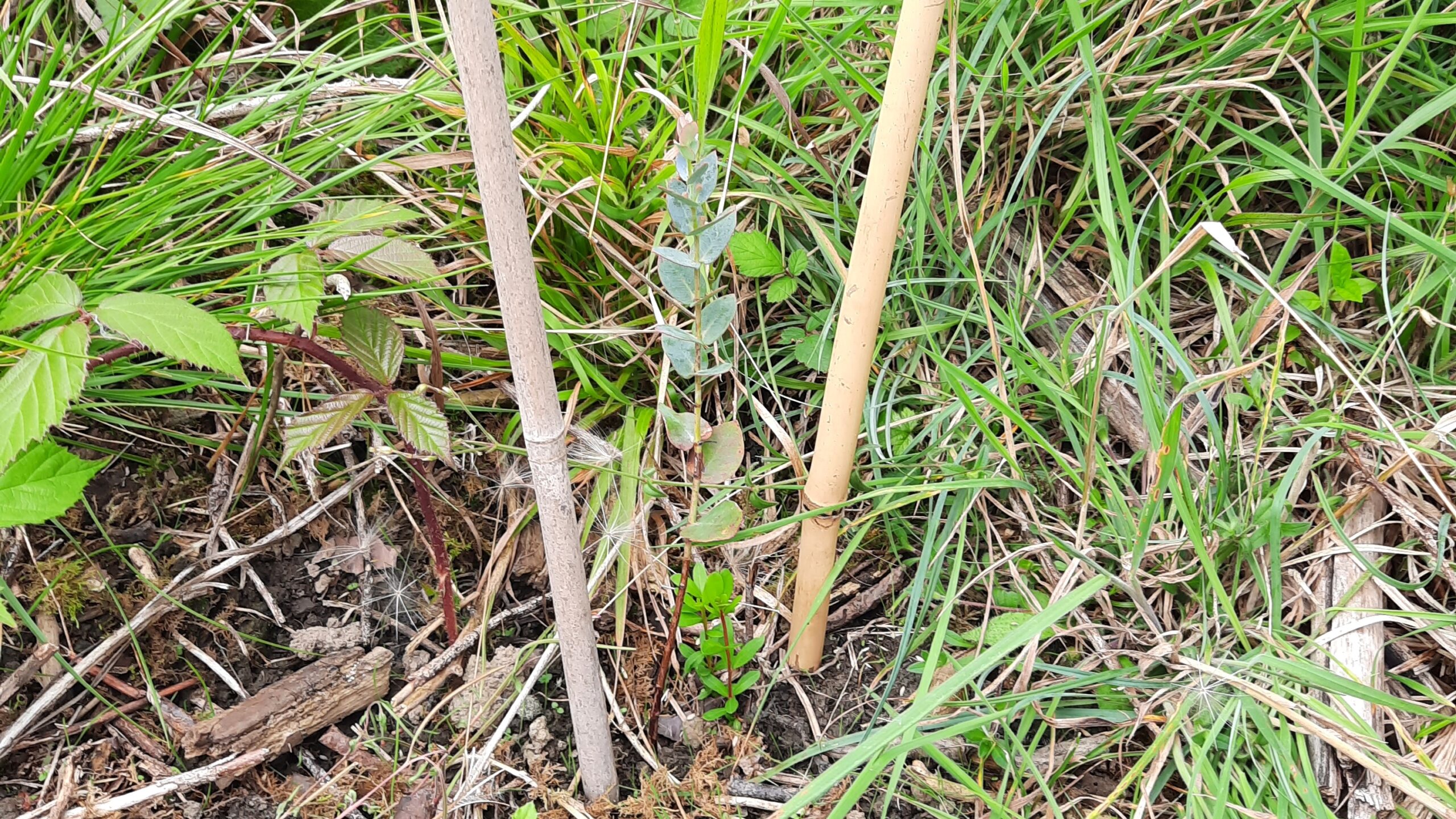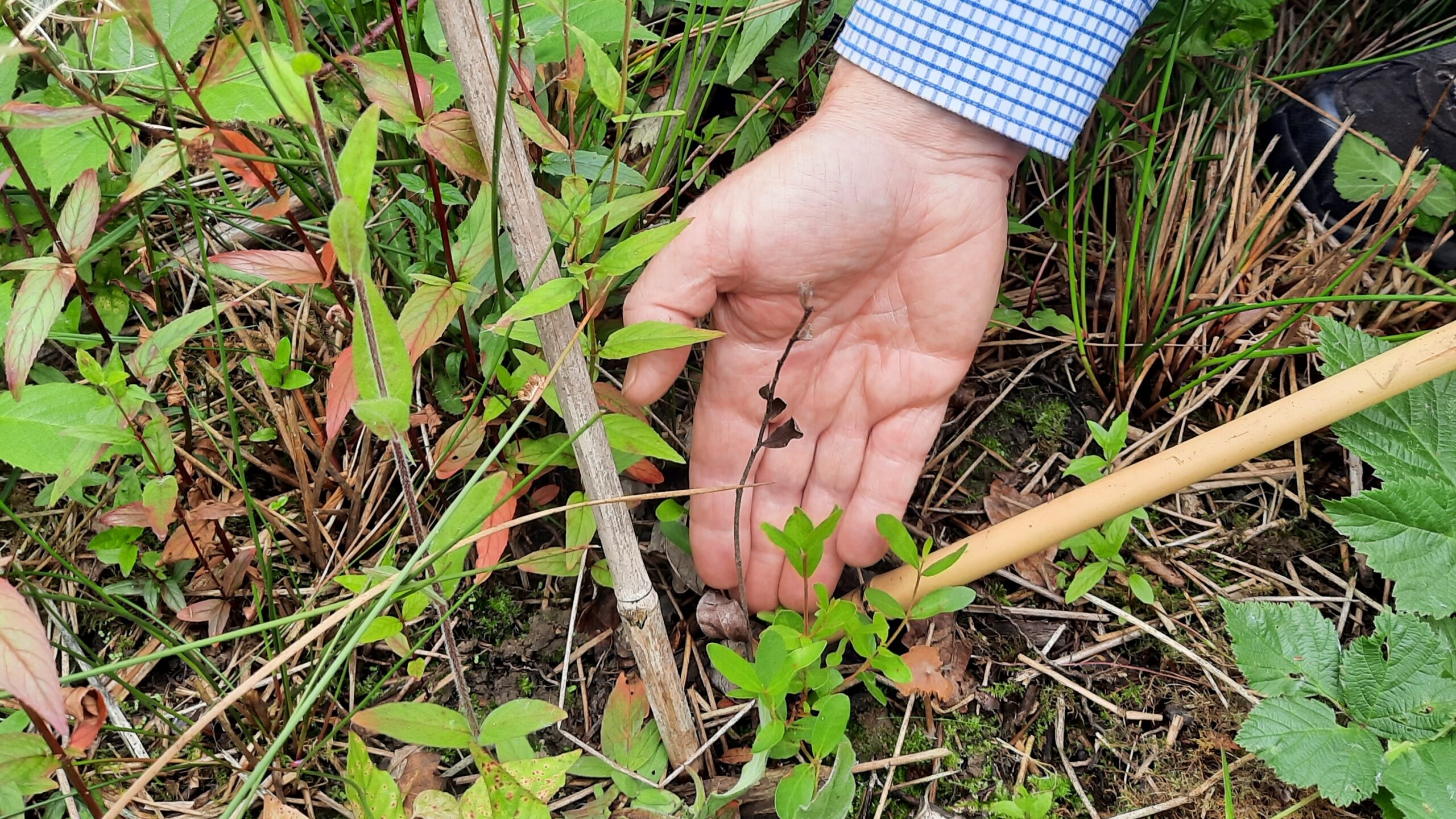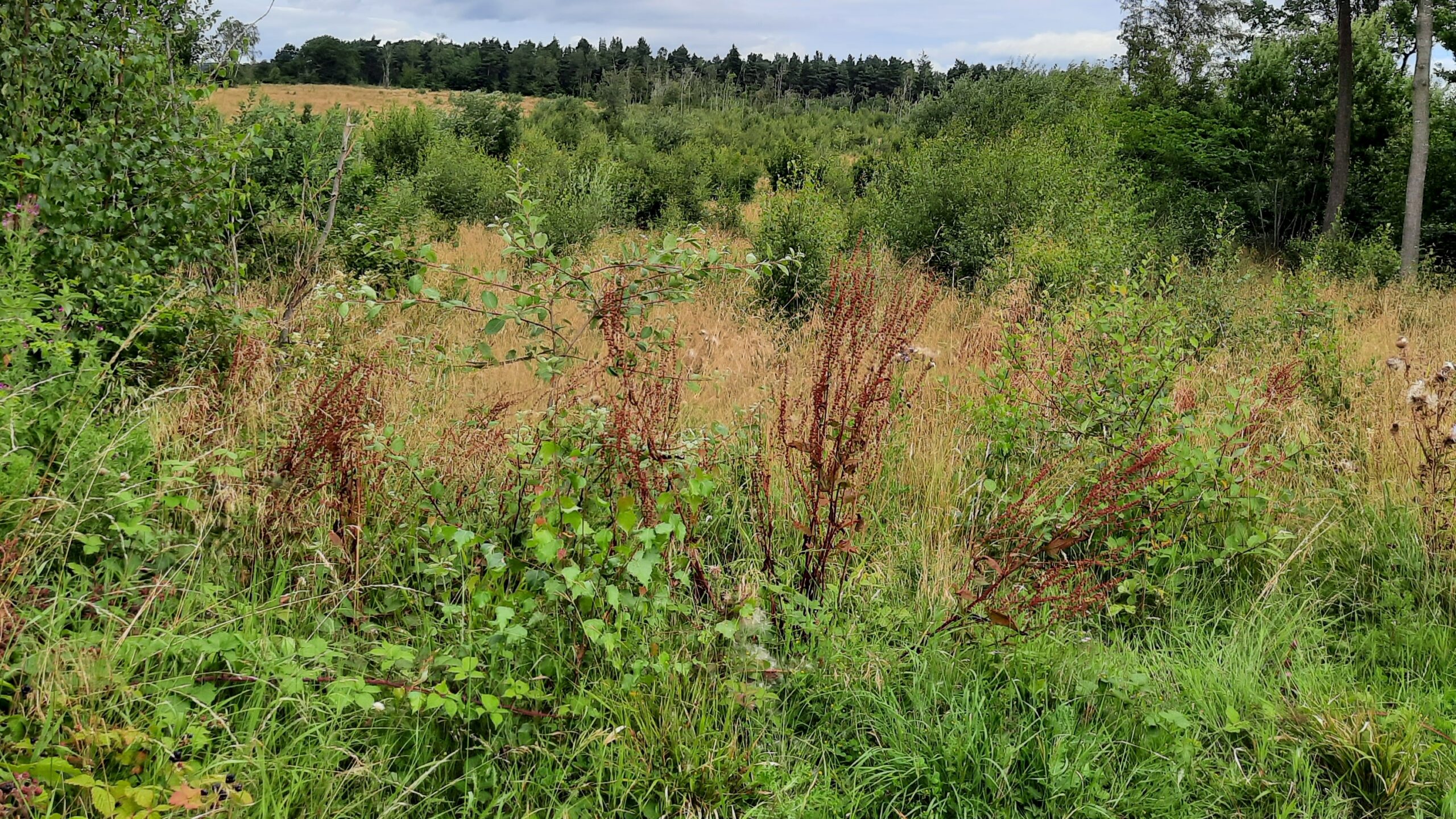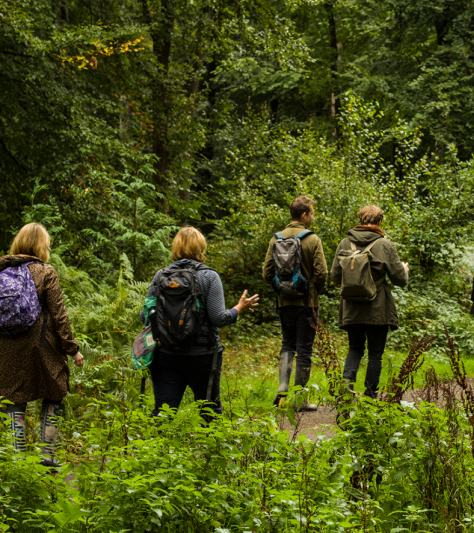Expanding Tree Species: Eucalyptus in North Yorkshire
Constable Burton Estate near Leyburn in North Yorkshire has a proud history of forest management.

Above: plantings of four species of Eucalyptus species are marked and colour coded to indicate where biochar and enhanced biochar has been used as an accelerant in planting
Under owner Charles Wyvill, and, now, his son D’Arcy, income from more than 300 hectares of traditional conifer plantations and mixed woodland has an important place in the estate’s business plan. Woodland thinnings also fuel the estate’s biomass boiler.
The purchase by the estate of the Yorkshire Charcoal Company, together with the first mobile charcoal burner in the UK, has given a new impetus to using estate-grown wood. The company specialises in premium grade charcoal from the estate’s ash, oak, beech and sycamore trees. This is primarily sold to high-end chefs and via farm shops. Biochar, a by-product of the charcoal production, can be used as a growing accelerant for plants, including trees. It is seen as a potential and important income stream for the company.
As they look to the future, Constable Burton Estate is actively considering species which are expected to thrive in the climates expected in 50-80 years’ time. They also aim to spread the risks from new and existing tree pests and diseases by adding species diversity.
Looking ahead

Above: Eucalyptus glaucescens or Tingiringi gum, one of four species planted at Constable Burton
Constable Burton Estate already has specimen trees around the main house and gardens. These include a grove of Giant Redwoods (Sequoiadendron giganteum).
A 1.2 hectare clearfell of Scots pine and silver birch within their Givendale Plantation, provided an opportunity to trial a new-for-the-estate fast-growing productive tree species – Eucalyptus – using Grants for Resilient Woodlands.
Establishment
The compartment is naturally regenerating with birch. Advice was sought from forestry consultant Jackie Dunne from Dunnewoods and Bryan Elliott, owner of Eucalyptus Renewables. A mix of four hardy Eucalyptus species, each offering slightly different properties, was agreed.
In July 2022, 1,500 trees were planted at 2.2m spacing between the regenerating birch trees which acts a shelter and nurse to the saplings.
- Eucalyptus denticulata – Errinundura shining gum – did not survive the extremes of temperature. It was replaced with E.urnigera – Urn gum – at beat up. Urn Gum, originally from Tasmania, is cold tolerant and frost hardy to -18C. Growth: 24m3/ha/annum.
- Eucalyptus glaucescens – Tingiringi gum – is cold tolerant to around -18C and very adaptable. Growth: 26m3/ha/annum.
- Eucalyptus dalrympleana – Mountain white gum – is originally from Tasmania provides productive tall timber trees. It is tolerant to around -14oC. Growth: 30m3/ha/annum.
- Eucalyptus rodwayi – Peppermint swamp gum – is well suited to wet sites with a low nutrient requirement. Growth: 24-26 m3/ha/annum.
These were sourced from Eucalyptus Renewables’ nursery in Guernsey where they had been grown from seed. They have Plant Healthy Certification.
Three different planting methods were tried:
- Straight in the ground
- With biochar from the Yorkshire Charcoal Company
- With biochar enhanced with pheasant droppings from the estate’s shooting enterprise
Planting maintenance – weeding – was carried out in August and September 2022 with beat up and maintenance in June 2023.
Challenges

Above: Bryan Elliott demonstrates healthy Eucalyptus rodwayi regrowth after harsh winter weather had appeared to kill initial growth
The exceptionally dry and hot summer of 2022 was followed by the cold winter of 2022/2023 and out-of-season frosts. This contributed to a 70-80% failure rate identified at beat up. Most of these trees have been replaced in 2023 like for like but with Eucalyptus denticulata replaced with Eucalyptus.urnigera.
Eucalyptus species can be deceptively resilient to cold. Some young plants that initially looked as though they had perished during the winter have since grown back.
It is too early to determine whether the different planting methods will have an impact on their growth.
Roe and recently arrived fallow deer along with grey squirrels are controlled on site. Eucalyptus is not particularly palatable to mammals so a conscious decision was made not to use tree tubes.
Financial Returns

Above: Looking to the future. Four eucalyptus species planted among the regenerated birch here are expected grow fast and to be ready for first thinnings in around six years
The aim is to provide an additional fuel option for the charcoal company or/and to feed the biomass boiler. As the market for timber use in the UK develops there may also an opportunity to grow on for premium timber markets.
The current expectation continues to be for a first thin/coppice in 6-7 years with subsequent rotations every 6-7 years.
As the Yorkshire Charcoal Company business expands, it hopes to employ more staff locally.
The addition of more species will also help ensure continuity of a wider landscape dominated by agriculture and woodland.
More Information
If you are interested in learning more about this project, please email bryan@eucalyptusrenewables.co.uk
Grants for Resilient Woodlands
Our Grants for Resilient Woodlands are funded by Train Hugger and Green The UK. They are open for applications from RFS and Royal Scottish Forestry Society (RSFS) members all year round.



